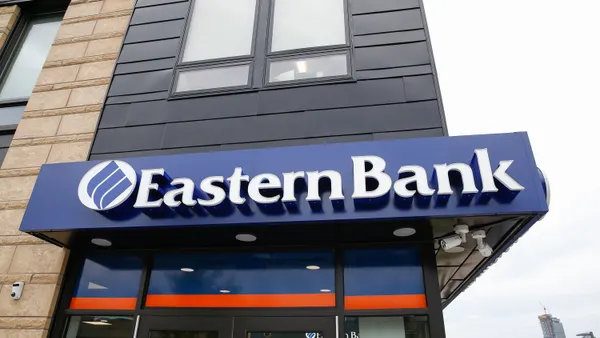Dive Brief:
-
Boston-based State Street will vacate its two New York City offices as the investment bank pivots its real estate strategy to accommodate a hybrid workforce, the firm told employees in a memo, according to The Wall Street Journal.
-
The bank plans to sublease its two offices in Midtown Manhattan, sources told the Journal. The two offices have been largely empty since the early days of the pandemic last year. The closure of the two offices will affect more than 500 employees across the company’s custody bank and money-management businesses, sources said.
-
State Street’s pivot comes as financial services companies across the country are reevaluating and shifting their office-return timelines amid the spread of the highly transmissible delta variant, with some choosing to adopt permanent hybrid solutions.
Dive Insight:
"We have taken a diligent look at our real-estate footprint in NYC," Edward Patterson, a spokesperson for State Street, told the Journal.
"[The bank] is ensuring that our realty needs are in line with where our employees will be working," he said.
State Street's New York employees have the option to work at the firm’s New Jersey and Stamford, Connecticut, offices following the New York closures. The bank has also leased co-working space in Manhattan for workers who choose to use it, the Journal reported.
Another financial services company to reevaluate its work policies amid the pandemic is Los Angeles-based Dave Banking.
The neobank implemented a virtual-first model that applies to all employees working for the Los Angeles-based fintech.
Dave, which went entirely remote amid the pandemic, decided to make permanent changes to its geographic requirements and pay scale as part of the new model. Employees can live and work anywhere in the U.S., except for Hawaii, and will be paid based on California labor rates, the company’s chief people officer, Shannon Sullivan, told Banking Dive this month.
Other traditional firms, however, still want their workers to return to the office, and have shifted their return plans amid rising cases of the delta variant.
Wells Fargo shifted its return date from Sept. 6 to Oct. 4, while U.S. Bank has postponed its return to office plan indefinitely.
Charlotte, North Carolina-based Truist, which began hybrid work arrangements for a limited number of employees in June, pushed back its reopening phase from Oct. 1 to later in October or November.
Some institutions are mandating employees are fully vaccinated before they return to in-person work at offices.
Citi, which plans to allow most employees to work remotely up to two days per week, said it is requiring employees to be vaccinated before they return to offices Sept. 13.
Capital One, which delayed its office return by nearly two months, will also require all office-based employees be vaccinated before returning to in-person work, CEO Richard Fairbank told employees in a memo last week.
The McLean, Virginia-based bank, which had originally planned to have employees return to the office by Sept. 7, pushed back its date to Nov. 2.












